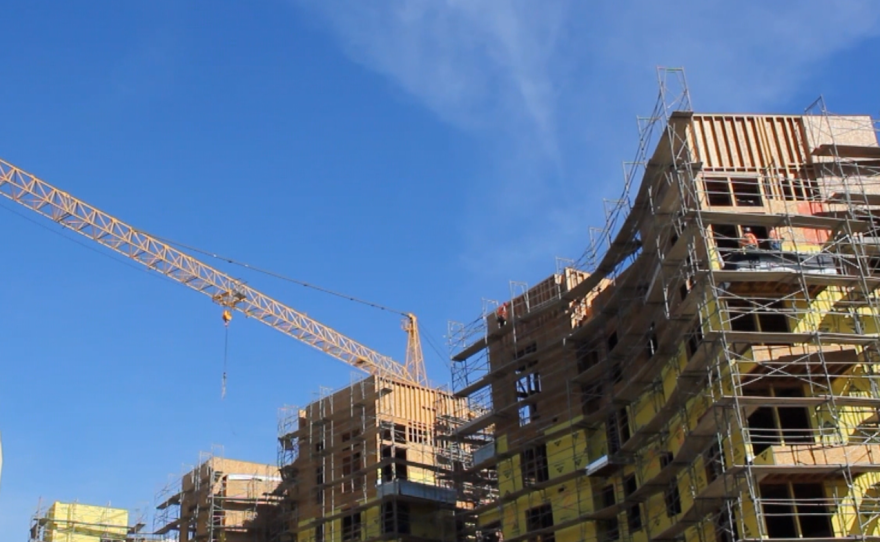San Diego Mayor Kevin Faulconer proposed a set of reforms to the city's parking requirements Friday, allowing the construction of housing projects without parking spaces as long as they're within a half-mile of a planned or currently-existing transit stop.
Currently, housing projects in San Diego require a minimum number of parking spaces attached to each housing unit built. While the minimum varies depending on the size of the project, the mandatory inclusion of parking spaces can raise construction costs between $35,000 and $90,000 per unit, according to the mayor's office.
RELATED: Parking Mandates Threaten To Derail Dorm-Style Apartments Near SDSU
Should the city eventually codify the proposal, housing contractors could build housing units with no parking spaces as long as they are within what the city calls a "transit priority area," defined in the San Diego Association of Governments' 2050 Regional Transportation Plan as sitting within a half-mile of an existing or planned transit stop, with planned being the operative word since the transportation plan is designed to remain in use through 2050.
"We need to create more housing affordability for San Diego's working families and this will be a big step in that direction,'' Faulconer said. "We know that more and more people are choosing to live without a car and are demanding quality housing near transit. This plan gives builders the freedom to be smart and creative with their projects, while contributing to our housing supply and our climate action goals by getting more cars off the road."
RELATED: San Diego Failed To Reduce Carbon Footprint In 2017
The city would also mandate that new housing developments in transit priority areas offer resources to make climate-conscious transportation feasible, including secure bike storage and repair stations, transit passes and storage and locker facilities for delivered packages and other items.
District 7 City Councilman Scott Sherman and public transit advocacy group Circulate San Diego have already announced their support for the proposal, praising Faulconer's effort to reduce the cost of housing and increase incentives to use public transit.
"Circulate San Diego is pleased to see the Faulconer administration taking leadership on citywide parking reform," said Circulate San Diego Executive Director Colin Parent. "Updating parking rules will allow more people to live and work near transit, which is key to our climate and affordability goals."
According to the mayor's office, the proposal could cut $35,000 or more per parking space in construction costs, which theoretically would lead to cheaper housing units.
The mayor's office intends to send the proposed plan to the City Council's Smart Growth and Land Use Committee in early 2019.





